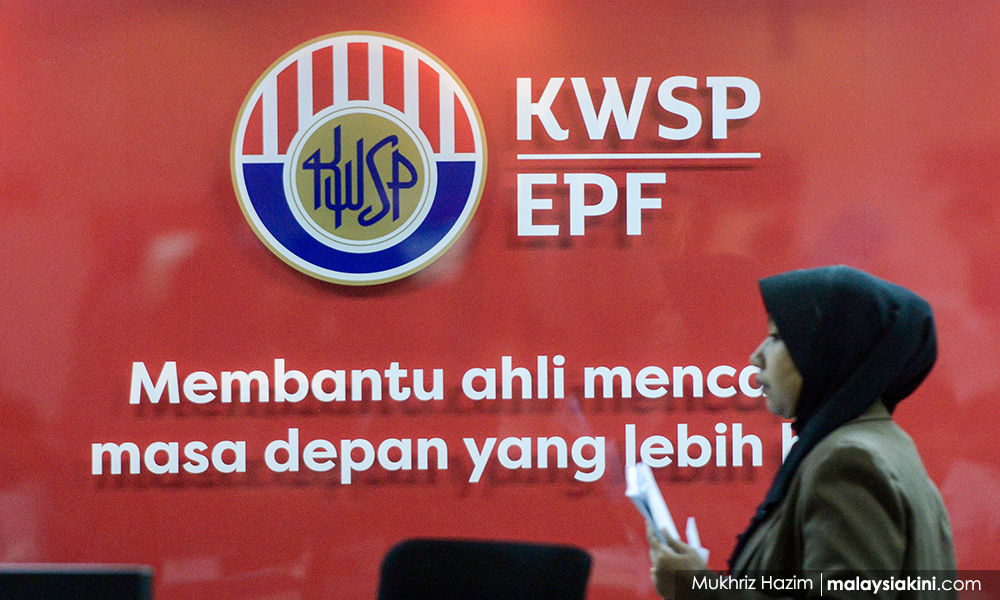
With expectations of a recession due to the Covid-19 pandemic, economists surveyed by Malaysiakini have called for more protection for small and medium enterprises (SMEs) as well as vulnerable groups in the government’s forthcoming economic stimulus plan.
They also advised against corporate bailouts.
Prime Minister Muhyiddin Yassin is set to announce what he termed a "comprehensive" package today.
An RM20 billion plan was rolled out last month, but this was before cases began spiking in the country, warranting the need for a necessary but economically-damaging movement control order (MCO).
Muhyiddin has since announced additional measures and the package to be announced today will be the second full stimulus plan.
RM100 billion rescue plan
With a long list of affected groups, Universiti Malaya economics professor Rajah Rasiah estimated that the country would need a rescue plan to the tune of RM100 billion.
"Much of it must be distributed only after the lockdown is ended to see that the funds generate inter-business and household synergy.
"The Economic Action Council members must view whatever instruments introduced as temporary and that they will need stringent, performance-based monitoring and appraisal to ensure its success," he said.
Similarly, the Malaysian Institute of Economic Research (MIER) has proposed a stimulus plan to the tune of RM75 billion for what it called an "extraordinary crisis budget" to supplement the previously announced RM20 billion plan.
"Such allocation will be imperative especially to avoid company bankruptcies, loss of jobs, impaired household incomes and welfare...," MIER said in a statement.
Singapore's Parliament is currently working on a stimulus plan that would amount to 11 percent of its gross domestic product (GDP).
The proposed package will include wage support - particularly for those in food services, aviation and tourism - as well as direct cash handouts.

Other proposals include the scrapping of property tax for virus-hit hotels, restaurants and shops; the abolishment of government fees and charges for a year; and that suspension of late-payment charges on public housing mortgage loan arrears for three months, among others.
Save SMEs
For Ideas economist Laurence Todd, the government ought to lift the MCO restrictions on some businesses to increase economic activity, especially as the order was extended by another two weeks to April 14.
This, Todd said, must be implemented hand-in-hand with strict health and safety measures to prevent the Covid-19 contagion.
"We need to maximise economic activity during the (MCO) restrictions...
"The definition of exempted businesses may need to be expanded to cover more of the supply chain... to give more businesses the permission to operate but under strict requirements on hygiene and clear protocols on regular testing," he said.
Under the present rules, the people have been strongly advised to remain home while only a limited number of "essential" businesses are allowed to operate under strict social-distancing conditions.
Restaurants, for example, are not allowed to accept dine-in customers but can pack food for takeaways and deliveries.
This has resulted in a decline in demand, adversely affecting the cash flow of SMEs and straining their ability to keep staff while staying open.
In 2018, SMEs made up 38.3 percent of the GDP.
On top of suggestions that Putrajaya steps in to temporarily subsidise salaries, Universiti Malaya's Rajah proposed tax relief for SMEs.
"SMEs should be relieved of taxes and other bureaucratic payments.
"Once the spread of Covid-19 is stopped, commercial banks should be directed by the Finance Ministry to put aside specific portfolios to assist SMEs with preferential interest rate loans and use a credit guarantee scheme to cover collateral," Rajah told Malaysiakini.

As for big corporations, he believes that bailouts were unnecessary.
"While it is good to ensure that the costs of doing business are reduced for large businesses, there is no real need to bail them out, apart from ensuring that predatory bearish runs are prevented," he opined.
Social protection for poor
Other than SMEs, the virus and MCO have also threatened the job security and wages of low-income earners.
All economists Malaysiakini spoke to opposed Putrajaya’s decision to allow the needy to withdraw RM500 a month from their EPF savings to pay for current needs.
Rather than let the poor rely on their own retirement savings, Rajah said it would be more beneficial for the government to provide cash aid.
"The government should spare the B40 group of their EPF savings.
"Instead, they should offer RM1,000 per household per month until the economy gets back to normal," he said.
Opposition coalition Pakatan Harapan similarly proposed that the B40 be given RM2,000 in Bantuan Sara Hidup (BSH) aid to help cushion them
Meanwhile, Social Wellbeing Research Centre (SWRC) director Norma Mansor noted that allowing EPF withdrawals would effectively weaken social protection for the poor.
Norma also opposed to allowing contributors to cut their monthly EPF contributions from 11 percent to 7 percent.

Some eight million Malaysian workers are not active EPF contributors, and Norma said that the government should expand the social safety net to cover them.
"Through the recently announced Employment Retention Programme (ERP) by Socso, the formal sector can claim RM600 per month for loss of employment.
"So, for a start, giving the self-employed and irregular income earners a similar package that mirrors ERP, in addition to the BSH, would be helpful," proposed the Universiti Malaya emeritus professor.
In addition, Norma appealed for help for the elderly and disabled as they typically rely on their family and relatives for support, and are thus acutely vulnerable in an economic downturn.
"We seriously need stronger and more comprehensive social protection, which can only happen with a wider revenue base," she argued. - Mkini



No comments:
Post a Comment
Note: Only a member of this blog may post a comment.